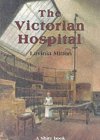|
Air - Victorian Health and Medicine
From 'The Dictionary of Daily Wants' - 1858-1859
AIR is composed of oxygen, nitrogen, and carbonic acid gases, in
the proportion of oxygen 20 volumes, nitrogen 79 volumes, carbonic acid gas one volume.
The air when once breathed parts with one-sixth part of its oxygen; were it therefore to
be breathed six times successively it would be deprived of all its oxygen; the consequence
of which would be that the blood would be divested of its vitality, the organs have their
action suspended, and death would ensue. Air vitiated by the different processes of
respiration, combustion, and putrefaction, or which is suffered to stagnate, becomes
prejudicial to the human frame; hence large cities, public assemblies, hospitals,
burying-grounds, &c., are injurious to health, and often productive of contagious disorders.
The quality of air is greatly influenced by local causes; sea air is well
known to be beneficial and invigorating, which is attributable to its constant agitation
by the winds and tides, and also to the absence of many deteriorating causes to which land
is subject, such as the respiration of animals and the putrefaction of animal and
vegetable substances. Lofty and exposed aspects have a bracing effect upon the system,
while low situations, if on a dry soil, are more congenial to less hardy constitutions.
In many instances, however, the surrounding air may be rendered pure or impure by
circumstances over which we have immediate control. If, for instance, we suffer filth and
refuse to accumulate near our dwellings, a vitiated atmosphere will be the inevitable
consequence of the exhalations arising from these nuisances ; or if an impure state of the
air exist without any such, aggravating causes, the remedy is within our power by the
appliance of such means as art and science have placed within our reach.- See. also
DRAINAGE, EXERCISE, VENTILATION, &c.
AIR, CHANGE OF, is efficacious in many diseases, amongst which are
pulmonary complaints, asthma, affections of the throat and windpipe, dyspepsia, and
hypochondriasis, chronic rheumatism, scrofula, liver complaints, and the state of
convalescence from fevers.
Pulmonary complaints are benefited by removal from a colder to a warmer
climate; and ,
from the equality of its temperature, is universally esteemed as the best adapted for
consumptive patients. In dyspepsia and hypochondriasis, the suitability of climate
depends on the habit and constitution of the patient. If there be a relaxation and
debility, a dry and bracing air is needed; but if the tendency of the system be to fever
and inflammatory action, the soft and humid climates are preferable. In cases of chronic
rheumatism, mild climates are generally found suitable, such as Bath in England, and
Rome or Nice on the Continent. In scrofula a pure, bracing air is required, such as the
watering places on the north-west coast. In liver complaints, and convalescence from
fevers, change of air generally, guided by circumstances, is beneficial. The benefits
derivable from change of air are not applicable alone to invalids and convalescents, but
will yield an equal source of enjoyment and relaxation to all those whose avocations are
pursued daily in busy cities and towns, and whose systems become exhausted by the constant
and unremitting exertions which their minds and bodies undergo.
>
|
 The Victorian Hospital
The Victorian Hospital
by Lavinia Mitton
Short perspective on Victorian medical care
More information and prices from:
- British pounds
- US dollars
- Australian Dollars
- Canadian dollars
- Euros
- Euros
|